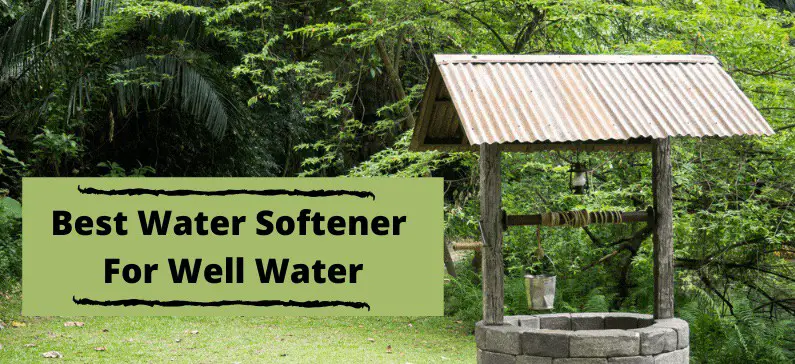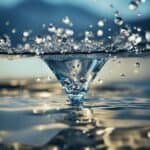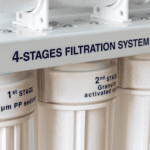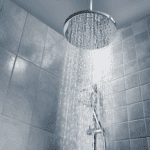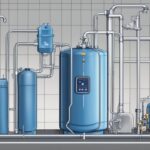Water is a fundamental need for all living beings, but with the rise of modern civilizations and the challenges they bring, the quest for clean, safe drinking water has become a critical issue. Today, many households and businesses debate the choice between filtered water and bottled water.
In this article, we will delve into the key differences between filtered and bottled water, consider their environmental, health, and cost implications, and provide guidance to help you make an informed choice.
What is Filtered Water?
Filtered water refers to tap water that has undergone additional purification processes to remove contaminants and impurities.
Most home or office water filter systems utilize activated carbon or charcoal filters. These filters work by absorbing impurities as water passes through. Other systems may use distillation, reverse osmosis, or UV disinfection.
- Benefits of Filtered Water:
- Reduced contaminants: Removes impurities such as chlorine, lead, bacteria, and pesticides.
- Taste and Odor: Improves the taste and smell of the water.
- Cost-Effective: Filtered water systems have a higher initial cost but lower overall expenses compared to bottled water.
- Limitations of Filtered Water:
- Filter Maintenance: Requires regular filter changes to function effectively.
- Limited Removal: May not remove all types of contaminants, depending on the filter used.
- Initial Investment: The upfront cost for filtration systems can be high.

What is Bottled Water?
Bottled water is water that has been packaged in plastic or glass bottles for consumption. It includes several types such as spring water, purified water, mineral water, and more.
Most bottled water undergoes a rigorous purification process before packaging. This may include distillation, reverse osmosis, or ozonation.
- Benefits of Bottled Water:
- Convenience: Easy to grab on the go and available in various sizes.
- Quality Assurance: Undergoes strict regulations to maintain safety standards.
- Variety: Available in several types like mineral, spring, or flavored water.
- Limitations of Bottled Water:
- Environmental Impact: Plastic bottles contribute to pollution and waste.
- High Cost: Regular consumption can become expensive over time.
- Potential Contaminants: Plastic bottles may leach harmful substances into the water.
Related: Quench Your Thirst with a Hint: A Review of Hint Water
Filtered Water vs Bottled Water: Environmental Impact
Water consumption doesn’t just impact our health but also our environment.
Bottled water contributes significantly to plastic waste, as most bottles are non-biodegradable. Though some are recyclable, statistics show that the majority end up in landfills or oceans.
In contrast, filtered water has a much smaller environmental footprint. Although filters need replacing, the overall waste is considerably less than that of bottled water.

Health Considerations
Both filtered and bottled water provide cleaner drinking options than untreated tap water, but they offer different health considerations.
Bottled water is typically safe to drink and may contain beneficial minerals, depending on the source. However, plastic bottles can leach chemicals like BPA into the water, especially when exposed to heat.
On the other hand, filtered water effectively removes most contaminants while retaining beneficial minerals. Its safety is primarily dependent on the quality of the filter and its maintenance.
Cost Implications
While bottled water provides convenience, it comes with a high long-term cost. On average, bottled water can cost up to 300 times more than tap water.
Conversely, the cost of a water filtration system may seem high initially but pays off over time. Once installed, the only recurring expense is the cost of replacement filters, making it a more economical choice in the long run.
Taste Considerations
When it comes to taste, personal preference plays a big part. Some people might notice a significant difference in taste between bottled and filtered water, while others might not.
Bottled water, especially the mineral or spring variety, often has a distinct taste due to the minerals it contains. On the other hand, filtered water, especially from activated carbon systems, generally has a cleaner taste as it removes the chlorine used to treat tap water.
The Impact on Appliances
Filtered water isn’t just for drinking. It can also impact the lifespan and performance of appliances that use water.
Hard water, which contains high levels of calcium and magnesium, can cause scale buildup in appliances like kettles and coffee makers. Using filtered water in these appliances can prevent this buildup, thereby improving the efficiency and longevity of the appliances.
Accessibility and Availability
In many regions, especially rural or remote areas, the availability of bottled water can be limited. In such cases, a water filtration system can ensure a consistent supply of clean water.
Conversely, in emergency situations or natural disasters, bottled water can be a lifesaver when regular water sources are compromised.
Quality Assurance and Regulations
Both bottled and filtered water are subject to quality assurance and regulations, but these can vary widely depending on the location and source.
Bottled water is regulated as a packaged food product by the FDA, subject to regular quality checks. But it’s worth noting that regulations can differ between states and countries.
Filtered water, on the other hand, depends on local tap water quality and the effectiveness of the filter system used. It’s crucial to choose a filter certified by an independent organization, such as NSF International, to ensure its effectiveness.

Installation and Maintenance of Filter Systems
Installing a water filter system requires some initial effort and investment. Depending on the system chosen — from simple pitcher filters to under-sink or whole-house systems — the complexity of installation can vary.
Maintenance primarily involves changing the filters at recommended intervals. Failing to do so could reduce the effectiveness of the filter and potentially compromise the quality of the water.
Considerations for Business Owners
For business owners, choosing between filtered and bottled water can impact both operational costs and company image.
A business that uses a lot of bottled water may find significant savings by switching to a filtered water system. Additionally, businesses can enhance their image by promoting environmentally-friendly practices, such as reducing plastic waste from bottled water.
Conclusion
When comparing filtered water and bottled water, each option has its merits and drawbacks. Your choice will ultimately depend on your unique needs and preferences.
Filtered water offers a more eco-friendly and cost-effective solution that can deliver high-quality water right from your tap. It requires a bit more maintenance, but for regular at-home consumption, it provides a consistent source of clean water.
On the other hand, bottled water provides convenience and quality assurance, making it a good choice for on-the-go hydration or emergency situations. However, the environmental and financial costs of frequent bottled water consumption are worth considering.
In summary, both filtered and bottled water can provide clean, safe drinking water. The best option for you depends on factors like your lifestyle, budget, and personal values. By understanding these details, you can make an informed decision that benefits your health, your wallet, and the environment.
Frequently Asked Questions
What is the main difference between filtered water and bottled water?
Filtered water is tap water that has been purified through a filtering system to remove impurities and contaminants. On the other hand, bottled water is commercially packaged water, which has undergone purification processes before being sold.
Which is better, filtered water or bottled water?
Both options have their pros and cons. Filtered water is more environmentally friendly and cost-effective in the long run, while bottled water offers convenience and regulated quality standards. The better choice depends on individual needs, preferences, and circumstances.
Is filtered water safe to drink?
Yes, filtered water is generally safe to drink as long as the filter system is properly maintained. Some filters can effectively remove most contaminants, but it’s important to change filters regularly according to the manufacturer’s instructions.
Does bottled water contain contaminants?
While bottled water undergoes rigorous purification processes, it’s not entirely free from contaminants. Certain substances might leach into the water from the plastic bottles, especially when exposed to heat.
Is filtered or bottled water better for the environment?
Filtered water has a smaller environmental footprint compared to bottled water. Bottled water contributes significantly to plastic waste and pollution, while filtered water produces less waste, primarily from the replacement filters.
Which tastes better, filtered water or bottled water?
Taste is subjective and varies from person to person. Some people prefer the clean taste of filtered water, especially if it has been filtered to remove chlorine. Others might prefer the distinct taste of mineral or spring bottled water.
Can a filtered water system improve the performance of my appliances?
Yes, using filtered water in appliances like coffee makers and kettles can prevent scale buildup from hard water, potentially improving the appliances’ efficiency and lifespan.
Are there regulations on the quality of filtered and bottled water?
Bottled water is subject to regulations by the FDA as a food product, with strict quality checks. The quality of filtered water, however, depends on the local tap water quality and the effectiveness of the filter system used. Always choose a filter certified by an independent organization for assurance.


